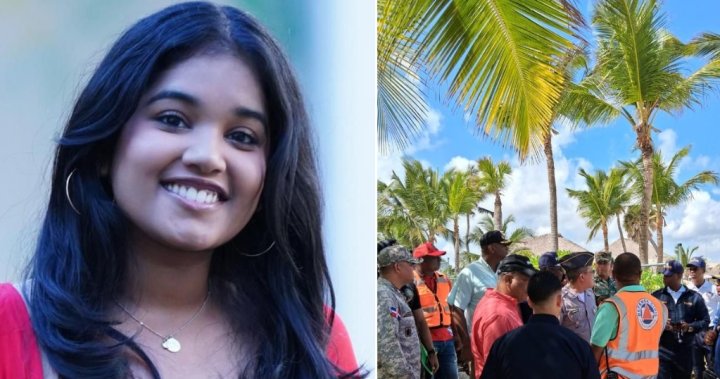Social media influencers pose a "new and increasing threat" for uncontacted indigenous people, a charity has warned after the arrest of a US tourist who travelled to a restricted Indian Ocean island.
Mykhailo Viktorovych Polyakov, 24, allegedly landed on North Sentinel Island in an apparent attempt to make contact with the isolated Sentinelese tribe, filming his visit and leaving a can of coke and a coconut on the shore.
Survival International, a group that advocates for the rights of tribal people, said the alleged act endangered the man's own life and the lives of the tribe, calling it "deeply disturbing".
The US said it was aware and "monitoring the situation".
Andaman and Nicobar Islands' police chief HGS Dhaliwal told news agency AFP that "an American citizen" had been presented before the local court and was remanded for three days for "further interrogation".
AFP, citing Mr Dhaliwal, said Mr Polyakov blew a whistle off the shore of the island in a bid to attract the attention of the tribe for about an hour.
He then landed for about five minutes, leaving his offerings, collecting samples and recording a video.
The police chief told AFP: "A review of his GoPro camera footage showed his entry and landing into the restricted North Sentinel Island."
It is illegal for foreigners or Indians to travel within 5km (three miles) of the islands in order to protect the people living there.
According to police, Mr Polyakov has visited the region twice before - including using an inflatable kayak in October last year before he was stopped by hotel staff.
On his arrest earlier this week, the man told police he was a "thrill seeker", Indian media reported.
Survival International said the Sentinelese have made their wish to avoid outsiders clear over many years and underlined that such visits pose a threat to a community which has no immunity to outside diseases.
Jonathan Mazower, spokesperson for Survival International, told the BBC they feared social media was adding to the list of threats for uncontacted tribal people. Several media reports have linked Mr Polyakov to a YouTube account, which features videos of a recent trip to Afghanistan.
"As well as all the somewhat more established threats to such peoples - from things like logging and mining in the Amazon where most uncontacted peoples live - there are now an increasing number of... influencers who are trying to do this kind of thing for followers," Mr Mazower said.
"There's a growing social media fascination with this whole idea."
Survival International describes the Sentinelese as "the most isolated Indigenous people in the world" living on an island around the size of Manhattan.
Mr Mazower told the BBC an estimated 200 people belong to the tribe, before adding it was "impossible" to know its true number.
Few details are known about the group, other than they are a hunter-gatherer community who live in small settlements and are "extremely healthy", he said.
He added that the incident highlighted why government protections for communities such as the Sentinelese are so important.
The UN's Indigenous and Tribal Peoples Convention sets out obligations for governments to protect the rights. India's government has an initiative focusing on tribal welfare, but the country has come under criticism in recent years for failing to protect against evictions.

 16 hours ago
3
16 hours ago
3









 English (US) ·
English (US) ·